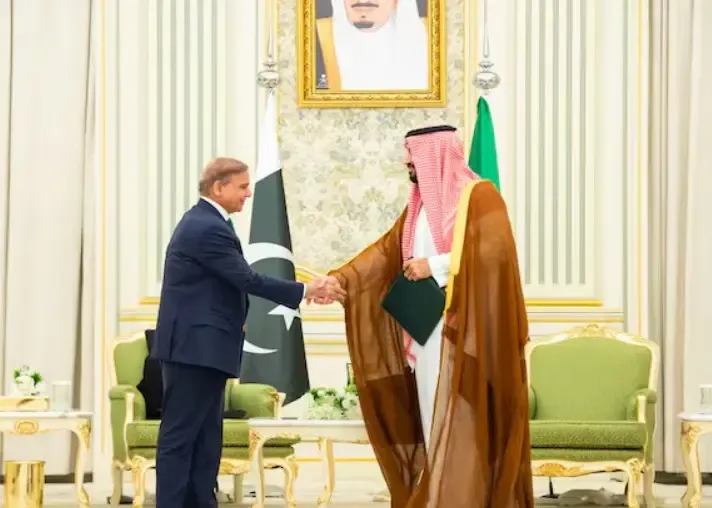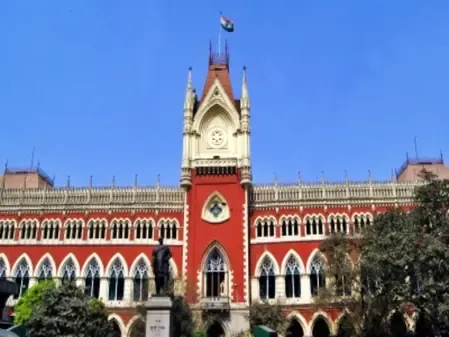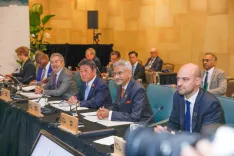What Are the Implications of the Saudi-Pakistan Defence Pact for India?

Synopsis
Key Takeaways
- India is analyzing the implications of the Saudi-Pakistan Defence pact.
- The agreement formalizes a long-standing military alliance between Saudi Arabia and Pakistan.
- Recent terrorist attacks have raised concerns about regional stability.
- India's operations highlight its proactive stance against terrorism.
- Geopolitical dynamics are continuously evolving in the region.
New Delhi, Sep 18 (NationPress) Following the establishment of a strategic mutual Defence pact between Saudi Arabia and Pakistan, India has announced its intention to thoroughly evaluate the implications of this agreement for national security and regional stability. The Indian government emphasized its unwavering commitment to safeguarding its interests.
This agreement was formalized in Riyadh, where Pakistani Prime Minister Shehbaz Sharif and Saudi Crown Prince Mohammed bin Salman declared that an attack on one nation would be regarded as an attack on both.
In reaction, the Ministry of External Affairs (MEA) released a statement indicating, "We have noted the reports regarding the signing of a strategic mutual Defence pact between Saudi Arabia and Pakistan. The Government was aware that this significant development, which formalizes a long-standing arrangement between the two countries, had been under consideration."
"We will analyze the implications of this agreement for our national security as well as for regional and global stability. The Government remains dedicated to protecting India's national interests and ensuring comprehensive national security across all domains," it further stated.
The 'Strategic Mutual Defence Agreement' represents the most formal articulation of a security relationship that has seen Pakistan training Saudi forces and engaging in joint exercises since the 1960s. A joint statement from Riyadh and Islamabad conveyed that the pact aims to "enhance various aspects of Defence cooperation" and "fortify joint deterrence against any acts of aggression."
This development coincides with a recent attack in Pahalgam, which resulted in the deaths of 26 individuals at the hands of heavily armed terrorists from The Resistance Front, an offshoot of the Pakistan-based Lashkar-e-Taiba.
In retaliation, India initiated 'Operation Sindoor', targeting nine high-value terror infrastructures located in Pakistan and Pakistan-occupied-Kashmir (PoK). In response, Pakistan conducted counterstrikes, escalating tensions in the region.
India subsequently launched 'Operation Sindoor Outreach', dispatching delegations of parliamentarians and officials to allied nations to emphasize Pakistan's state-sponsored terrorism. One such delegation, led by BJP MP Baijayant Panda, visited Saudi Arabia as part of this campaign.
The Defence pact also emerges amid a broader atmosphere of instability within the region.
Just two days prior, Arab and Islamic nations convened an extraordinary joint session of the Arab League and the Organisation of Islamic Cooperation (OIC) following Israel's September 9 airstrike in Doha, which killed senior Hamas political figures during ceasefire negotiations. This strike prompted widespread condemnation throughout Arab capitals.









